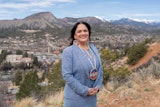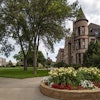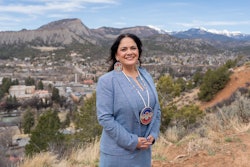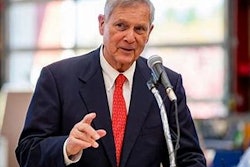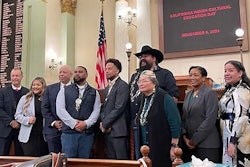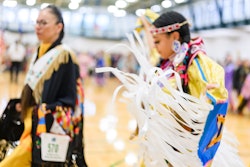Students and activists protested at the University of Minnesota, demanding the school follow through on promises made to tribal communities. They asked the school to expand a tuition support program that they say few can access, MPR News reported.
The Native American Promise Tuition Program – announced in 2021 and began last fall – offers free or reduced tuition based on family income but is limited to enrolled members of Minnesota’s 11 federally recognized tribal nations and requires that the participants be first-year undergraduates or transfer students from tribal colleges.
In Fall 2022, 18 of 146 Native freshmen got funding through the program. The program excludes displaced Lakota and Dakota people forced to settle in what are now other states, said Laila Gourd, a sophomore from the Spirit Lake Nation in North Dakota.
The protest – organized by The American Indian Student Cultural Center with the school’s chapter of Students for a Democratic Society – called for the program to be expanded to include current undergraduate, graduate, and professional students, and descendants of all federally or state recognized tribal nations.
Multiple universities, including U of M, profited from sale and leasing of land taken from Dakota people in the 1800s, according to reporting from High Country News.
“It is just insanely inadequate for the fact that the University of Minnesota is a land grab university,” Sorcha Lona, an organizer with Students for a Democratic Society. “It owes its Native students free tuition.”
In response, the university said that the program was nascent and not yet complete. Earlier this month, the school requested state funding for a full tuition program that would expand eligibility – the request has been included in Gov. Tim Walz’s revised budget plan.
“Many students who currently qualify for the Native American Promise Tuition Program are receiving a large share of support from other existing programs from federal, state and University sources,” said university spokesperson Jake Ricker. “I think it's worth reiterating something the University has said previously about this program, which is in the very first year of its existence. This program does not represent completed work.”
